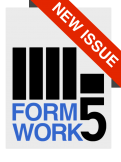
Marie Jacobsen has worked as an early childhood teacher for 22 years – 20 years as a director – but when she started a new job at a Catholic primary school last year, there was no choice but to start her as a Proficient teacher on Band 2, Level 1 instead of Band 2, Level 5 (almost $20,000 a year difference in pay).
Early childhood teaching experience is not recognised under the terms of the enterprise agreement in any Catholic diocese as teaching experience.
Marie, who is a member of the IEUA NSW/ACT Branch Early Childhood Council, said this disadvantages rural and regional teachers that move between preschool and primary school jobs more frequently.
Coming from a family of long term members of the Country Women’s Association (CWA), and being a member of the CWA herself, Marie has made this issue a motion for discussion at the CWA’s May state conference.
The motion is as follows: “That the policy of CWA of NSW shall be to advocate for Early Childhood Education and Care Services to be recognised under the legislation as Australian registered schools, therefore ensuring university qualified early childhood teachers who work in both formal school settings and/or early childhood settings are recognised and acknowledged for their experience, skills and qualifications”.
Marie said the CWA is a non political lobby group with its own ethics committee, that had to be convinced this issue was of genuine concern before it was accepted.
“The bottom line is teachers are teachers, we all have the same university qualifications, we all do the same NESA accreditation, we all pay our $100 a year, but the legislation does not reflect this.
“This is not just about the equal pay, although that’s part of it, it’s acknowledging that our role is just as important and that we do the same work as any other teacher.
“Early childhood teachers are professional teachers the same as any other teacher, they just specialise in early childhood rather than primary, secondary teaching or teaching children with additional needs.”
Marie said the ultimate irony is that a “primary or secondary teacher who has been primarily engaged in child-rearing has such a period recognise on the basis of one increment for each continuous three years of child-rearing, to a maximum of four increments”, whereas an early childhood teacher who had worked in a preschool or long day care centre would not have any of that experience recognised.
Sue Osborne Journalist










































































































































